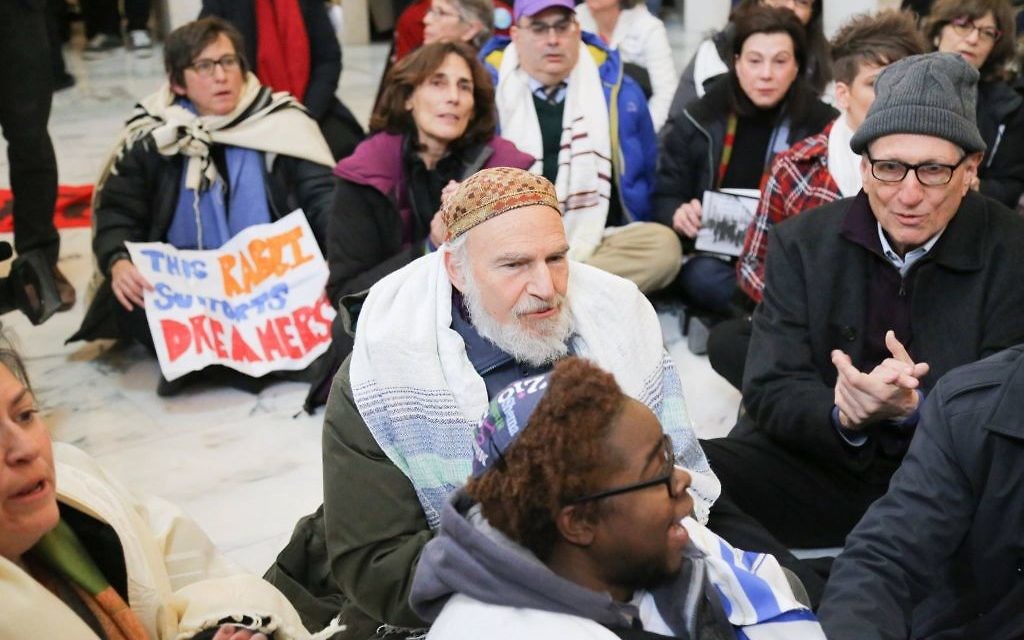‘History of Oppression’ Inspired DACA Protest
Abbie Fuksman and other Jewish Atlantans recently demonstrated in Washington in support of the Deferred Action for Childhood Arrivals program Jan. 17.

Abbie Fuksman carried her inspiration from Atlanta to Washington for a demonstration in support of the Deferred Action for Childhood Arrivals program Jan. 17.
During the sit-in at the Russell Senate Office Building, Fuksman held up a photograph of her father taken at Bergen-Belsen.
“In that picture he is protesting with a sign that read, ‘We will not allow ourselves to be imprisoned in camp.’ I carried their personal history of oppression,” she said of her parents, both Holocaust survivors. “I did what I did in Washington because no one sat in for them. How could I not sit in (for DACA participants) today when I am all too aware of those before me?”
Get The AJT Newsletter by email and never miss our top stories Free Sign Up
Fuksman and fellow Jewish Atlantan Leah Fuhr were among more than 100 participants in the demonstration, organized by Bend the Arc Jewish Action, the Anti-Defamation League and the Religious Action Center for Reform Judaism, to support legislation protecting illegal immigrants known as dreamers, who were brought to the United States as children.
“I deeply believe in the rights of those who grew up here; they are basically Americans just like any other kids,” Fuhr said about her motivation for joining the demonstration. “They are productive citizens and amazing people who have a right to be here, and we as Jews need to stand up for them. Other groups throughout history have been there when we needed them, and now it’s our turn to support populations that are being targeted.”
Fuhr and Fuksman were among more than 80 protesters who were arrested, fined and released.
Fuhr is active with Bend the Arc in Atlanta and worked for Jon Ossoff’s congressional campaign last years as manager of political affairs.
“Our goal wasn’t necessarily to get arrested. It was to galvanize the Jewish community around this issue, which we did,” Fuhr said. “I was very proud and honored to participate.”
Fuksman, a member of SOJOURN (Southern Jewish Resource Network for Gender and Sexual Diversity), said she was “inspired by our tradition of liberation” to join the protest.
“The arrest was done with respect for all. We were treated every step of the way as people with a just cause,” Fuksman said. “It moved all of us: the Jews that were involved and the dreamers.”
Fuhr agreed. “It was a privileged arrest in that it was very calm and polite and respectful. It was pre-negotiated. The police made us comfortable. Nobody got thrown around or mistreated.”
But she said the irony of the situation weighed heavily on her mind. “I was thinking the whole time that the people we were there to support and protect, the dreamers, would not be able to have an arrest like this. We were able to do this and bring attention to their issue, but we didn’t experience the criminal justice system like they would have done.”
Fuksman said the dreamers “are more than a DACA acronym; they are 800,000 people who are unable to put themselves at risk. Not everyone would feel comfortable getting arrested, but I feel all Jews must find an effective way to advocate for them. I would do it again in a heartbeat.”




comments